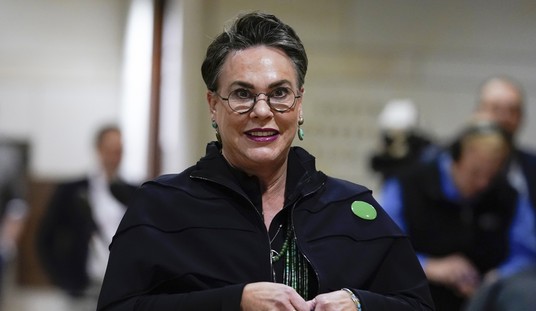=========
=========
Promoted from the diaries by streiff. Promotion does not imply endorsement.
=========
=========
As William Teach pointed out, it’s rather humorous that the Pyrite State is so worried about sugary drinks, yet legalized marijuana usage. From the Los Angeles Times:
Is gulping soda as bad as smoking? California seems to think so
By The Times Editorial Board | March 4, 2019 | 3:10 AM PST
In California, soda is the new tobacco — at least from a public policy point of view.
Adopting some of the same methods that have been employed to reduce smoking, California legislators have put together an ambitious package of bills aimed at curbing consumption of sodas, energy drinks and other beverages that have added sugar.
The proposals, which are sponsored by the California Medical Assn. and California Dental Assn., include levying a tax on sugar-sweetened beverages, mandating warning labels on their bottles and restricting how they are promoted and displayed in stores, as well as limiting the serving size of fountain drinks. The proceeds from the tax (the amount is yet to be determined) would fund programs to prevent obesity, diabetes and other health problems associated with the overconsumption of sugar.
It’s an intriguing approach that has already sparked a backlash from the soda industry and a public discussion about what role the government should play in grocery store purchases. Now the onus is on public health officials to make a clear and compelling case about the dangers — and to explain why sugary drinks deserve as harsh a regulatory response as cigarettes.
There’s much more at the original.
Full disclosure: I love Mountain Dew, and I had been consuming mass quantities of it since I was a teenager in the 1960s. It was nothing for me to drink four bottles or cans of Dew in a day, and on a particularly hot summer day, the count could go higher. When we lived in Pennsylvania, I even had my own, separate Dew refrigerator in the basement, because Mrs Pico continually complained that I had the regular ‘fridge set too cold, and was freezing the produce and eggs.
On July 1, 2017, when we moved back to the Bluegrass State, I gave up soda, cold turkey. I really haven’t missed it.
But, I digress. There is little question that soda isn’t particularly good for you; the Times’ editorial board was simply making the case that it hadn’t been proven bad enough for you for California to attempt to regulate and tax into disuse. I find it interesting that a state which has legalized the recreational use and sale of pot, has passed an assisted suicide law, tried to (but shelved) ban homosexual conversion therapy, and makes millions off of advertisements and product placements for the consumption of alcohol, is so very worried that you might drink a Pepsi.
But one of the proposed measures that could show results is definitely worth exploring: taxes on drinks with added sugar. Last week, a three-year study of the tax on sugar-sweetened beverages imposed by Berkeley in 2014 — the first in the nation — found that people in low-income neighborhoods bought fewer sugary drinks after the tax was imposed, while consumption trends remained the same in neighboring cities that didn’t have such a tax. The study also found that the people who drank fewer sugary beverages consumed more water during the same period.
This finding mitigates the argument that such a regressive levy would hit low-income people the hardest. Poorer people, many of them black and Latino, would still suffer, economically and physically, if they continued to drink copious amounts of sugar-sweetened drinks. But black and Latino Californians have higher rates of obesity than other populations, so if the higher cost encouraged them to switch to healthier (and untaxed) water, it would be a double benefit to them.
Translation: yes, it would have a disparate impact on minorities, but it’s for their own good, so that doesn’t matter!
The obvious question has to be asked: why is it any of the government’s business to “encourage” people to change their choices and habits? The city of Philadelphia imposed a special tax on sugary drinks, and part of the effect was to cut revenue to retailers near the city limits when their customers could, and did, easily drive to stores in neighboring Bucks and Montgomery counties to buy Mountain Dew without paying the ridiculous tax. It seems that customers were willing to spend a little more in gasoline to buy what they chose.
Of course, alcohol consumption is worse, far worse, than that of sugary drinks, and nobody in the Pyrite State is (seriously) trying to ban or reduce that. The editors of the Los Angeles Times even advocated changing state law to allow businesses which serve alcohol to continue serving until 4:00 AM rather than the 2:00 last call specified by state law:
California is still hewing to a 1935 law dictating that alcohol sales stop from 2 a.m. to 6 a.m., and that blanket prohibition no longer makes sense for cities with thriving music and nightlife scenes that compete for investment and tourism with the likes of New York City, Las Vegas and other late-night cities.
Heaven forfend! We wouldn’t want the “thriving music and nightlife scenes” to be stifled by not having people drinking during the very wee hours of the morning, would we? At best, I found some California sites which want to help people who drink too much alcohol to moderate their intake, but it seems that nobody wants to curtail it back to zero. The National Institute for Health said:
An estimated 88,0008 people (approximately 62,000 men and 26,000 women) die from alcohol-related causes annually, making alcohol the third leading preventable cause of death in the United States. The first is tobacco, and the second is poor diet and physical inactivity.
Yet California’s legislature doesn’t seem to care much about that!
The truth is that sugary drinks aren’t good for you, tobacco isn’t good for you, alcohol isn’t good for you, and, let’s be honest here, casual sex isn’t good for you, but you sure won’t find the home state of Hollywood trying to discourage the hook up culture!
Governments should just stay out of people’s personal decisions about what to put in their mouths. Yeah, a lot of things people do put in their mouths aren’t good for them, but those are decisions, intelligent or otherwise, which ought to belong to individuals, not politicians.
==========
If you found this article interesting, please visit my Red State story archive.
My personal website, The First Street Journal, includes articles not necessarily in Red State’s paradigm.
You can follow me on Twitter.















Join the conversation as a VIP Member